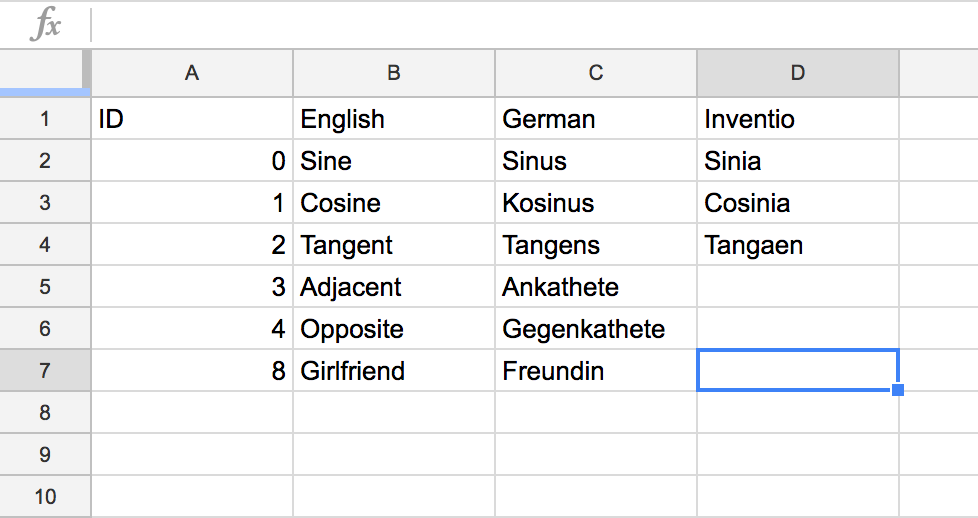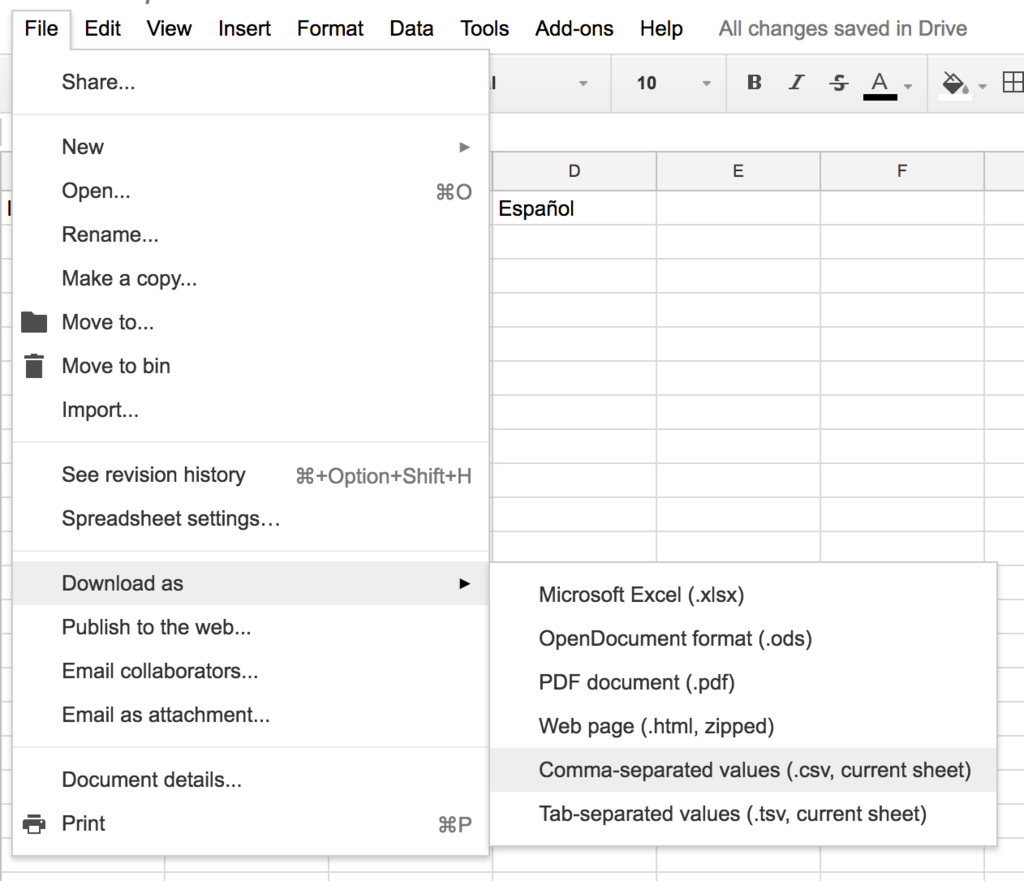
Localization through CSV tables.
In this walkthrough, we'll be using Google Sheets as a tool.

As you can see, a table with IDs in the first column, and languages in the first row should be created. This should be relatively easy to comprehend.

Rust
[dependencies]
// Assign latest version (Might not be the one saying)
csvll = "0.1.3"
cargo install
use csvlm::Manager; ```
Now we need a manager that parses the information for us ```Rust // The parameters are directory, filename & extension // My file is located outside of the project let mut manag = Manager::new("..", "test_table", ".txt");
// Then parse the file assigned manag.parse(); ```
Rust
// (Code continues from earlier)
// Set your default language with any available language id
m.set_def(0);
// Get language reference & vector of word references as a tuple
let (lang, word_vec) = m.get_def();
``` Rust id: i32, name: String
// Initalizer fn new(id: i32, name: &str) -> Language { /* ... */ } ```
``` Rust id: i32, lang_id: i32, val: String
// Initalizer fn new(id: i32, lang_id: i32, val: &str) -> Word { /* ... */ } ```
``` Rust
file: File,
langs: Vec
// Initalizer fn new(direc: &str, name: &str, ext: &str) -> Manager { /* ... */ }
// Further methods
// Parses languages & words into manager model fn parse() { /* ... */ }
// Sets default language by language id fn setdef(langid: i32) { /* ... */ }
// Returns reference to set def. language & vector of references to words of language fn get_def() -> (&Language, Vec<&Word>) { /* ... */ }
// Returns references to word of current language at index fn getword(wordid: i32) -> &Word { /* ... */ }
// Returns vector of references of words of current language at indicies
fn getwords(wordids: Vec
```